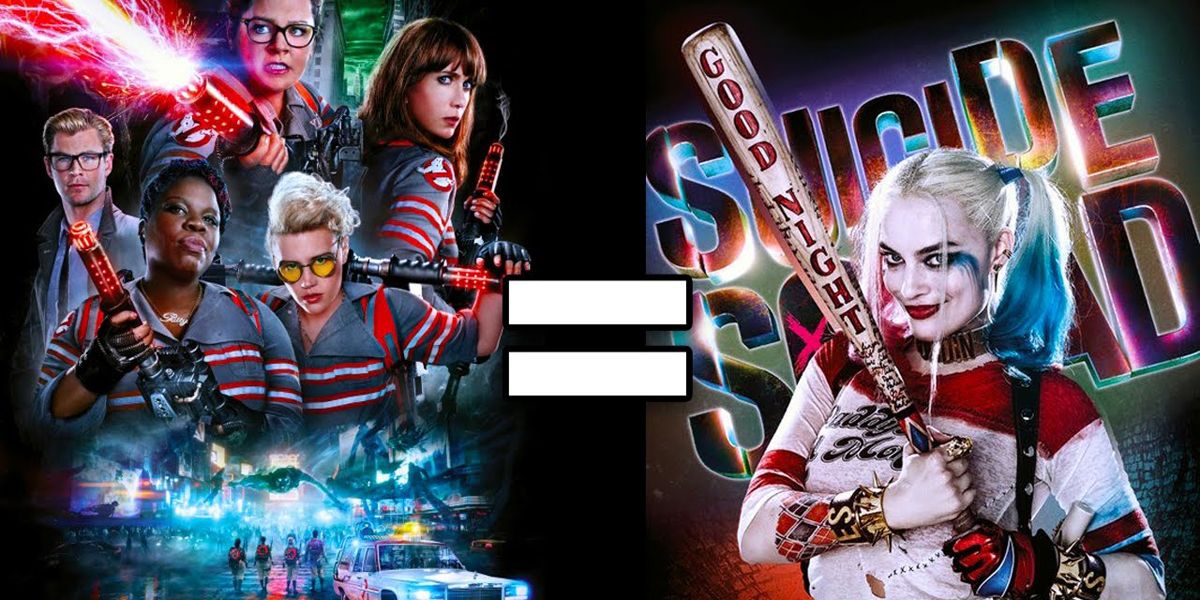2016 was unarguably a big year for blockbusters, but as a new video reminds us, quantity doesn't always equal quality.
Created by YouTube's Couch Tomato, "24 Reasons Ghostbusters & Suicide Squad Are The Same Movie" tackles two of the more controversial blockbusters in a year bloated with them: DC's antihero/Hot Topic fever dream "Suicide Squad" and the biggest political debate just short of the election, "Ghostbusters."
RELATED: "Deadpool" and "Suicide Squad" Inch Closer to an Oscar
One is about a band of unconventional heroes who defy expectations and defeat an otherworldly force, and the other is ... that same thing. Just watch to see the shockingly similar plot points side by side.
While "Suicide Squad" grossed far more than Sony's attempt at rebooting the beloved paranormal comedy ($745.6 million worldwide, compared to "Ghostbusters'" relatively meager $229.1 million), the public opinion on its quality was mixed. On the flip side,while "Ghostbusters" was weirdly met with a mix of hostility and fervent support before it was even released, the result was remarkably unremarkable. While the loglines of each would seemingly place the two in different genres, "Ghostbusters" and "Suicide Squad" have become two birds of the same mix-reviewed feather.
RELATED: "Ghostbusters Producer Says "Many Other" Movies in Development
As the video essay points out, both films fall victim to many a generic action-movie trope (if a climactic scene doesn't have an apocalyptic sky beam, did it really happen?), and that is Couch Tomato's point. "My goal is to simply prove that you cannot love a movie for the same reasons that you hate another," the video maker says in his channel intro. He doesn't just tear apart disliked films, however; other videos compare all of the "Star Wars" films, "Toy Story 2" and "Finding Dory," and "Lord of the Rings: Return of the King" and, I kid you not, "Warcraft."
The ability to find 24 similarities within all of these groups raises interesting questions about why praise certain films over others and how we discuss film in general. How could one film you love have virtually the same plot as one you don't? Perhaps the late, great Roger Ebert was right when he said, "It's not what a movie is about, it's how it is about it."

